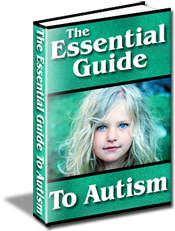Autism And Asperger Syndrome-Similarities And Differences
Click Here To Know The Simple Methods To Effectively Spot The 31 Signs of Autism
The Asperger syndrome affects children and adults patients by modifying their communication skills and making them unable to interact with the persons around them. The autistic disorder in most cases associates the lack of communication skills with learning disabilities.
The Asperger syndrome is an autistic disorder related to autism but with less symptoms or less serious modifications. The pure autism is rare, about one case in 5000 children and it occurs four times more often in male children than in girls. Autistic spectrum disorders are all conditions implying symptoms related to the manifestations of autism.
The exact cause of autism cases is still unknown to scientists but researchers have detected a possible link between the condition and a genetic factor without any actual pattern of inheritance. Autistic modifications are blamed on brain damages and abnormal development before birth, during childbirth or after birth.
The first signs of an autistic disorder appear soon after birth in severe cases but usually between the age of 3-4 when parents observe abnormal modifications in the child?s behavior. There are three main symptom groups involved in autism and patients with the Asperger syndrome have only some of these signs, unlike the children with actual autism who suffer from disorders from all of the three symptoms groups.
The main difficulty of children with autistic disorders is to interact with the persons around the. They hardly ever make and sustain an eye-contact, resist cuddling, reject any form of affection and never look for it, cannot stand being kissed, have difficulties in making friends and are mostly unable to play with children their age. Autistic patients are not able to understand emotions coming from other persons and have problems with obeying simple rules; this leads them to the incapacity of frequenting a regular school.
Patients show an obsessive interests for repetitive actions and might look at an object fro an increased period of time. They have no imagination and are not interested in imaginative play. The games are almost the same every day and usually match with playing methods used by younger children. The ability to communicate with others is disturbed, cannot keep a conversation and cannot use words in meaningful sentences.
Regular actions like walking, sitting up or down will be later acknowledged and assimilated than normally. All patients with autistic disorders tend to be clumsy and struggle the games lessons at school. Older patients develop obsessive interests for exact timetables and resist changes in their environment. They rapidly become agitated and angered if their routine is modified. Autistic children are extremely sensitive noise and light and might show severe responses.
For greater resources on Autism or especially about autism symptoms please click this link http://www.autism-info-center.com/autism-symptoms.htm
Labels: abilify_autism, activity_autism, adult_autism, autism_awareness

